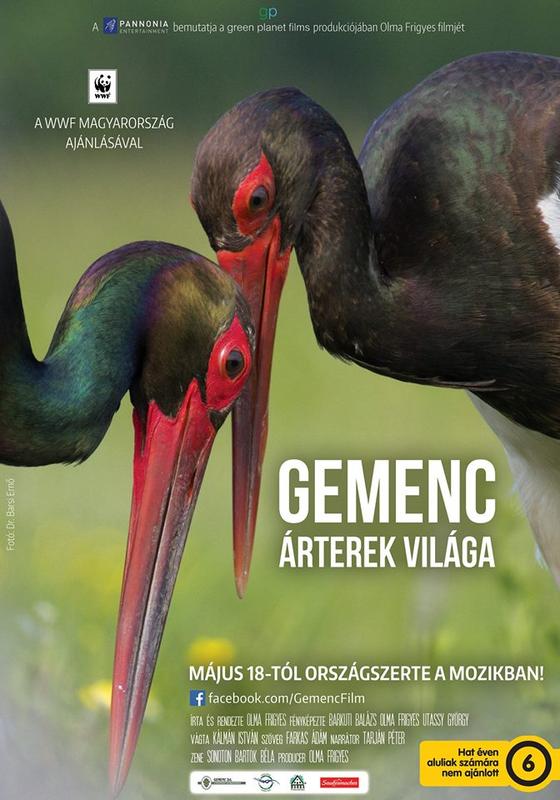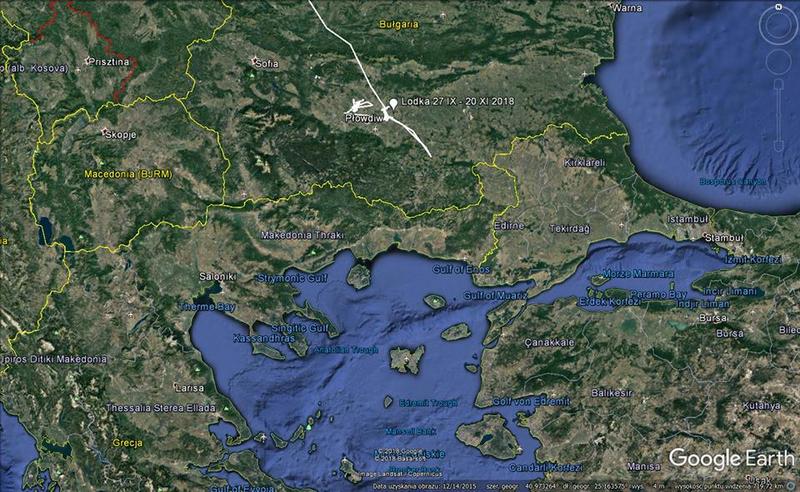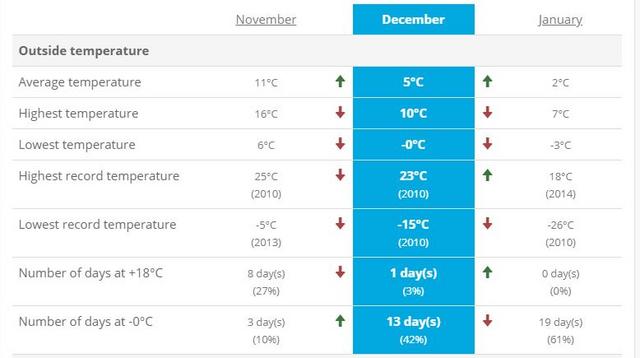Page 497 of 676
Re: Black Stork Nests in Europe
Posted: October 29th, 2018, 6:30 am
by Liz01
Re: Black Stork Nests in Europe
Posted: October 29th, 2018, 10:13 am
by Sue
Oh, poor little storklet

. And again human factor

. I am very sorry.
Liz, thanks for the info

Re: Black Stork Nests in Europe
Posted: October 30th, 2018, 2:39 pm
by asteria
Again human factor, again power lines and again Turkey!!!

Re: Black Stork Nests in Europe
Posted: November 2nd, 2018, 11:30 pm
by Solo
November 2nd

it is one film about Gemenc area, now also on DVD - the cover: Tóbiás and Sára

: here:
https://i.postimg.cc/26qx35FH/DVD-Gemenc.jpg
(Gemenc is the largest flood-plain forest in Central Europe, where water is constantly transforming the landscape. The Danube defines the everyday life of plants and animals: it nourishes, protects and threatens, builds and destroys it. The forest and river encounters an excellent habitat for its inhabitants: the Gemenc flood-plain forest is home to one of the largest populations of protected black storks, white tailed eagles, jackals, bees and wild boars. The cinematic nature film that has been filmed for five years with special technique, including hidden wild cameras, aerial and underwater cameras, gives us an insight into their lives, with never before seen recordings such as nesting black storks, or the dramatic sequences recorded during the Great Danube Flood in 2013. In addition to presenting the wildlife, the film also puts great emphasis on the special atmosphere of the floodplain forest with dawn landscapes and a lot of aerial photographs, while in the background we can enjoy the eternal melodies of Strauss, Vivaldi, Verdi, Puccini, Mahler and Bartók. source:
https://bit.ly/2PBgSPl )
and the first teaser (also Tóbiás and storklets) :
https://www.facebook.com/GemencFilm/vid ... 790693362/
and also here:
https://www.facebook.com/GemencFilm/vid ... 597136948/
Re: Black Stork Nests in Europe
Posted: November 4th, 2018, 8:48 am
by Liz01
Thank you, Solo

Our beautiful Tobias and Sara on the cover.


Re: Black Stork Nests in Europe
Posted: November 5th, 2018, 1:11 pm
by asteria
Woodek
 https://www.facebook.com/BocianiMy/phot ... =3&theater
https://www.facebook.com/BocianiMy/phot ... =3&theater
Translation with GT:
WHITE - moved to Chad!
Once again, WHITE surprises us. For the reminder is a black stork with a white foot transmitter from central Poland from 2017. He spent the first winter in Nigeria marking the southern route. This autumn he flew completely differently, i.e. the "classic" eastern route. We thought that he would land in Sudan, meanwhile ...? For now, he rocked Chad! The life of a stork is full of surprises
Re: Black Stork Nests in Europe
Posted: November 5th, 2018, 3:10 pm
by Solo
asteria wrote: November 5th, 2018, 1:11 pmWoodek ...
 Asteria
Asteria, TY - now Woodek - BIAŁY / WHITE is also in Black Stork Tracks thread (
viewtopic.php?p=619472#p619472 ... )
Re: Black Stork Nests in Europe
Posted: November 20th, 2018, 7:58 pm
by Solo
November 20
FB news Regionalna Dyrekcja Lasów Państwowych w Łodzi -
20. November 14:55
the Eldest storklet - Lodka  Od końca września Lodka żeruje na Nizinie Trackiej w okolicach Płowdiw. Ale ma już ponad miesiąc opóźnienia. Powinna być już w Afryce. Prawdopodobnie odłączyła się od grupy bocianów czarnych, z którymi leciała do Afryki. Dopiero wyraźne ochłodzenie zmusi ją do dalszej wędrówki. Bociany czarne to plastyczny gatunek. Coraz częstsze są przypadki zimowania bocianów czarnych w Izraelu lub w Hiszpanii. Ale zimą Bułgaria to nie Izrael. Powinna lecieć dalej.
Od końca września Lodka żeruje na Nizinie Trackiej w okolicach Płowdiw. Ale ma już ponad miesiąc opóźnienia. Powinna być już w Afryce. Prawdopodobnie odłączyła się od grupy bocianów czarnych, z którymi leciała do Afryki. Dopiero wyraźne ochłodzenie zmusi ją do dalszej wędrówki. Bociany czarne to plastyczny gatunek. Coraz częstsze są przypadki zimowania bocianów czarnych w Izraelu lub w Hiszpanii. Ale zimą Bułgaria to nie Izrael. Powinna lecieć dalej.
GT (with my little correction)
From the end of September Lodka feeds on the Thracian Plain near Plovdiv. But he has more than a month of delay. She should be in Africa. Probably she detached from the group of black storks with which she flew to Africa. Only a clear cooling will force her to continue her journey. Black storks are a adaptive species. Black storks wintering in Israel or Spain are becoming more frequent. But the winter in Bulgaria is not winter in Israel. It should go farther.

source:
https://bit.ly/2OWyjpv
Re: Black Stork Nests in Europe
Posted: November 21st, 2018, 3:46 pm
by Liz01
Solo wrote: November 20th, 2018, 7:58 pm
........
FB news Regionalna Dyrekcja Lasów Państwowych w Łodzi -
20. November 14:55
the Eldest storklet - Lodka 
.......
GT (with my little correction)
From the end of September Lodka feeds on the Thracian Plain near Plovdiv. But he has more than a month of delay. She should be in Africa. Probably she detached from the group of black storks with which she flew to Africa. Only a clear cooling will force her to continue her journey. Black storks are a adaptive species. Black storks wintering in Israel or Spain are becoming more frequent. But the winter in
Bulgaria is not winter in Israel. It should go farther.
.................
Solo, thank you for the update

Bulgaria is a wintering area

Zizat:
Das zentral zwischen den Städten Plovdiv und Karlovo gelegene Thracian Tal ist das bedeutendste Überwinterungsgebiet Bulgariens.
.... 68 Schwarzstörche verbrachten dort ihren Winter .....
GT:
Centrally located between the cities of Plovdiv and Karlovo, the Thracian Valley is the most important wintering area in Bulgaria.
.... 68 black storks spent their winter there...
Source : Der Schwarzstorch - Chapter 13.3- Page 297 Bulgarien
It seems to be a good area. Much food for the storks

Re: Black Stork Nests in Europe
Posted: November 21st, 2018, 6:08 pm
by Solo
Liz01 wrote: November 21st, 2018, 3:46 pm Bulgaria is a wintering area

...
maybe yes

, thank you for this optimistic info

but remember previous year (spring 2018

)
 The thermometer averaged maximum of 10°C. In the morning the temperature drops to -0°C. Thus, the mean temperature average on this month of December in Plovdiv is 5°C. These temperatures are far removed from those records observed in Plovdiv in the month of December with a maximum record of 23°C in 2010 and a minimum record of -15C in 2010. You can expect to have about 13 days with temperatures down below 0°C, or 42% of the month.
The thermometer averaged maximum of 10°C. In the morning the temperature drops to -0°C. Thus, the mean temperature average on this month of December in Plovdiv is 5°C. These temperatures are far removed from those records observed in Plovdiv in the month of December with a maximum record of 23°C in 2010 and a minimum record of -15C in 2010. You can expect to have about 13 days with temperatures down below 0°C, or 42% of the month.
(source:
https://www.whereandwhen.net/when/europ ... j4KbHDb.99)
BS tolerate also such extreme cold?

(see January 2010 - minus 26°C!)
btw. Birds in Bulgaria - nice BS photos (
https://www.birdsinbulgaria.org/birds.p ... pe=gallery) and infos
https://www.birdsinbulgaria.org/birds.p ... &type=bird
Re: Black Stork Nests in Europe
Posted: November 21st, 2018, 8:09 pm
by Liz01
Solo wrote: November 21st, 2018, 6:08 pm
.........BS tolerate also such extreme cold?

(see January 2010 - minus 26°C!)...
Solo, the problem is not the cold. Problem is, when the rivers and wetlands are frozen. Then they will not find any food.
I think I read it at Maris Stradz's.
Meanwhile, there are mild winters. But the black storks have come to us for ages. It was often frozen at the end of March. Latvia and Estonia had long winters. The cold must be unimportant as long as they can find food.That's logic. My logic

Thank you for the link to the beautiful birds

Re: Black Stork Nests in Europe
Posted: November 21st, 2018, 8:28 pm
by Solo
Liz01 wrote: November 21st, 2018, 8:09 pm ... Solo, the problem is not the cold.
Problem is, when the rivers and wetlands are frozen. Then they will not find any food. ...
yes, I know that too

- but minus 10 to minus 26 (lowest record temperature) in Plovdiv - big city - not open land
- very probably the marshland is not all covered with ice
- maybe also for body is cold important, but why big cold

(cold and hungry is bad combination

)
your logic is good


Re: Black Stork Nests in Europe
Posted: November 22nd, 2018, 7:04 am
by Liz01
Solo

We'll see what happens. He has a transmitter, that's good! If he moves on, we'll look at the weather. Then you can draw conclusions

Re: Black Stork Nests in Europe
Posted: December 15th, 2018, 10:41 am
by Liz01
Good Morning Solo
 https://www.facebook.com/BocianiMy/vide ... 3MzQxMDY1/
https://www.facebook.com/BocianiMy/vide ... 3MzQxMDY1/
GT:
Mariusz Wlazło: Nature is amazing. Looking at the stork nests,I wondered how these birds are coping with four-legged predators. And here you have a video of it. Thanks education, education. It is important to know.
A Black Stork is defending the nest against a Marten


Re: Black Stork Nests in Europe
Posted: December 15th, 2018, 11:12 am
by Solo
DECEMBER 15
Liz01 wrote: December 15th, 2018, 10:41 am ... A Black Stork is defending the nest against a Marten

...

Liz,
- TY (it is not "our" nest - no dab, no sosna

)
- marten was before nesting also in "your" Latvian nest last season at April 10 and the first egg was laid at April 12

(
https://www.looduskalender.ee/forum/vie ... en#p569337 and
https://www.looduskalender.ee/forum/vie ... en#p573937)
- Liz, you know/remember these vids?
https://www.looduskalender.ee/forum/vie ... 65#p591065

Re: Black Stork Nests in Europe
Posted: December 15th, 2018, 11:20 am
by Liz01
Solo, I know it's from the beginning of the season. They write that the storks are in Africa and they now have time to check the contents of the cameras. They found this.

BocianiMy
12. Dezember um 09:28 ·
Wieści z bocianiego gniazda w Kudypach
Sezon lęgowy zakończony. Większość boćków w Afryce. Mamy więc teraz czas żeby przeglądać zawartość fotopułapek. Zaczynamy od Nadleśnictwa Kudypy, gdzie przed przylotem bocianów w ramach projektu BocianiMy w Lasach zostało odbudowane gniazdo. Wiosną pojedynczy osobnik pojawiał się dość regularnie, ale do lęgu nie doszło. Natomiast ku naszemu zaskoczeniu gniazdo wizytowało kilkanaście gatunków ptaków, np.: jastrząb, myszołów, kowalik, sójka i bardzo często puszczyk (!?). Mamy podejrzenia, że w gnieździe zamieszkały jakieś gryzonie i że puszczyk po prostu próbował tam coś upolować

Zachęcamy do obejrzenia szczegółów w naszej galerii na:
GT:
BocianiMy
12. Dezember um 09:28 ·
News from the stork's nest in Kudypa
Breeding season is over. Most storks in Africa. So now we have time to browse the contents of the trap cameras. We start with the Kudypa Forest District, where before the arrival of storks as part of the BocianiMy project in Lasów, the nest was rebuilt. In the spring, a single individual appeared fairly regularly, but the hatch did not occur. To our surprise, however, the nest was visited by a dozen or so species of birds, eg: hawk, buzzard, nuthatch, jay and very often canczyk (!?). We suspect that some rodents lived in the nest and that the can just tried to catch something there

We encourage you to look at the details in our gallery at:
Re: Black Stork Nests in Europe
Posted: December 15th, 2018, 11:23 am
by Solo
Liz01 wrote: December 15th, 2018, 11:20 am Solo, I know it's from the beginning of the season. ...
info about latvian nest was not for you

here are the photos all visitors on BS nest in Kudypach, PL
http://bocianimy.pl/?page_id=392 (btw. puszczyk = Tawny owl,
https://bit.ly/2PGUtfw)
Re: Black Stork Nests in Europe
Posted: December 20th, 2018, 8:41 pm
by Solo
December 20
FB news Regionalna Dyrekcja Lasów Państwowych w Łodzi - 20. December 8:12
the Eldest storklet - Lodka after month

good news :-)
Lodka nadal koczuje w okolicach Płowdiw w Bułgarii. Pokarmu szuka w kanałach nawadniających pola. Jednak miejscowi ornitolodzy nie widzą w tym nic nadzwyczajnego - od lat w rejonie Płowdiw obserwują zimujące bociany czarne i białe. Zatem jest szansa dla naszej Lodki, że uda jej się przezimować w tamtym rejonie i jednocześnie uniknąć niebezpiecznej, szczególnie dla niedoświadczonego osobnika, wędrówki do Afryki.
GT: Lodka is still near Plovdiv in Bulgaria. He searches for food in irrigation channels. However, local ornithologists do not see anything extraordinary about this - for years in the area of Plovdiv observe wintering black and white storks. Therefore, there is a chance for our Lodka that she will be able to spend the winter in that area and at the same time avoid a dangerous migration, especially for an inexperienced individual, to Africa.
Liz01 wrote: November 21st, 2018, 3:46 pm ...Das zentral zwischen den Städten Plovdiv und Karlovo gelegene Thracian Tal ist das bedeutendste Überwinterungsgebiet Bulgariens. .... 68 Schwarzstörche verbrachten dort ihren Winter ... GT: ...
Liz 

bad news :-(
Niestety, o tym że jest to niebezpieczna trasa przekonały się nasze dwa bociany - Młodszy i Starszy - z 2016 z gniazda na sośnie. Starszy został zastrzelony w Turcji tuż przed Morzem Marmara podczas swojej pierwszej jesiennej wędrówki do Afryki, a Młodszy zginął w Libanie, 30 km od Bejrutu, w kwietniu 2018 podczas swojej drugiej wiosennej wędrówki do Europy. Prawdopodobnie Młodszy został zastrzelony, a lokalizator od razu schowany (np. zakopany w piasku). Sygnał z lokalizatora GPS Młodszego urywa się nagle nad lądem, chociaż jego lokalizator w chwili nadania ostatniego sygnału był w pełni naładowany. Lokalizator bociana, który by padł np. z wyczerpania lub rozbił się o druty, jest w stanie przekazywać dane o swoim położeniu jeszcze przez wiele dni, aż do zupełnego wyczerpania się baterii lub do całkowitego przykrycia lokalizatora przez nawiewany przez wiatr piasek. Mało prawdopodobna jest całkowita awaria w pełni naładowanego nadajnika, w temperaturze 18 stopni C. Musimy przyjąć, że nie ma już szans na to, że lokalizator Młodszego jeszcze się "odezwie". Część młodych osobników przeżywa jednak trudy wędrówki. Mamy nadzieję, że Lodka będzie miała więcej szczęścia niż jej pobratymcy z gniazda na sośnie.
Starszy - you maybe remember that the Elder (Sosna nest 2016) was shot in Turkey (Europe) - autumn 2016 and now also
Młodszy - the Younger was very probably also shot, in Lebanon 30 km from Beirut, April 2018 during his second spring migration to Europe.

source:
https://bit.ly/2QKra1a
Re: Black Stork Nests in Europe
Posted: December 21st, 2018, 7:53 am
by Liz01
Solo,


thank you for the bad news

GT:
Unfortunately, our two storks - the Younger and the Elder - from 2016 in the nest on the pine trees are convinced that this is a dangerous route. The elder was shot in Turkey just before the Sea of Marmara during his first autumn trip to Africa, and the younger one died in Lebanon, 30 km from Beirut, in April 2018 during his second spring trip to Europe. Probably the younger one was shot and the locator was immediately hidden (eg buried in the sand). The signal from the younger GPS locator suddenly breaks off land, although its locator was fully charged at the time of sending the last signal. The stork's locator, which would fall, for example, from exhaustion or crashed into wires, is able to transmit data about his position for many days until the battery is completely exhausted or the locator is completely covered by wind-blown sand.
It is unlikely that there will be a complete failure of a fully charged transmitter at a temperature of 18 degrees C. We must assume that there is no chance that the Younger locator will still be "rescued". Some of the young animals, however, are experiencing hardships. We hope that Lodka will have more luck than her kins from the nest on the pine tree.
That's what I think when a transmitter stops giving signal.
Re: Black Stork Nests in Europe
Posted: December 21st, 2018, 8:19 am
by Solo
Liz01 wrote: December 21st, 2018, 7:53 am ... thank you for the bad news

...
Good morning Liz, not only bad news - also good news, Lodka



: here: https://i.postimg.cc/26qx35FH/DVD-Gemenc.jpg ..



(see January 2010 - minus 26°C!)...

...